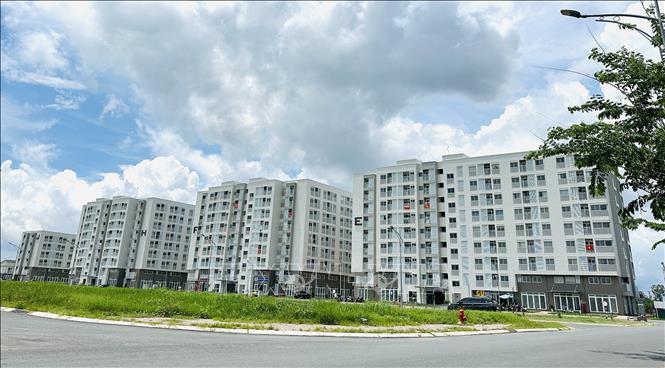
Some experts believe that the 6.6% interest rate for social housing buyers is too high, so it should be maintained at 4.8%.
Leverage from financial policy
According to Mr. Le Hoang Chau, Chairman of the Ho Chi Minh City Real Estate Association (HORE), the interest rate of 6.6% for social housing buyers is too high. He recommended that the Government maintain the rate of 4.8% to help people, especially young people, have the opportunity to create a place to live that suits their income.
At the recent seminar "Solving the thirst for affordable housing and solutions to attract residents to the New Urban Area", Mr. Le Hoang Chau said that according to Decree 100, buyers must borrow at an interest rate of 6.6% per year, which is too high. Meanwhile, from July 2021 to July 2024, the Prime Minister has repeatedly approved an interest rate of only 4.8% per year. From August 2024, the interest rate will increase to 6.6% per year.
After many petitions, the Government issued Decree 261 on October 10, 2025, the interest rate was reduced to 5.4%. “We still strongly recommend keeping the rate at 4.8%/year. Because with the current rate of 5.4%, if investors borrow from the Vietnam Bank for Social Policies (VBSP), they will have to pay an interest rate of 120% of 5.4%, which is up to about 6.48%, which is very high. Meanwhile, commercial banks are lending to social housing project investors like Nam Long at only about 5.9% to 6.1%,” said Mr. Le Hoang Chau.
When it comes to “affordable housing”, it can be divided into two types: social housing and affordable commercial housing. So what price is considered appropriate?
In 2013, when the Government issued Resolution 02, introducing a credit package of 30,000 billion VND, it stipulated that commercial housing with a price of 1,050 billion VND or less could borrow from the support package. Up to now, the appropriate price for commercial housing can be determined to be under 3 billion VND.
For this type of commercial housing, investors do not need special mechanisms on land funds or taxes, but only need credit incentives - similar to the VND145,000 billion package that the State Bank of Vietnam (SBV) is implementing for social housing and renovation of old apartments. "We recommend expanding this package to include affordable commercial housing, with the interest rate of 5.9 - 6.1% that banks are currently applying, which is relatively reasonable," said a representative of HORE.
However, some experts believe that the most important thing is to have a credit policy for buyers, with reasonable interest rates for a period of 20-25 years. Then, young people with some financial resources, especially first-time home buyers, can completely create a place to live. Only then can we truly solve the thirst for affordable housing.
According to the latest information from the Ministry of Construction, as of August 2025, banks have disbursed about 19,700 billion VND from the credit package to support the development of social housing. Along with that, the implementation of projects is also being actively accelerated by localities. It is expected that over 82,000 units can be completed this year, contributing to getting closer to the target of 100,000 units...
Lowering interest rates is not enough without solving the "root" of the problem.
According to some economic experts, if credit policy only stops at lowering interest rates without a mechanism to support implementation, it is easy to fall into a situation of difficulty in accessing capital. In addition, it is necessary to solve the root cause from the supply side, then preferential credit policies will be effective.
MSc. Tran Trong Triet - State Bank of Vietnam Region 15 said that there are currently 3 credit programs supporting the development of social housing. The first is the 120,000 billion VND package, to date 9 banks have registered to participate with a total limit of 145,000 billion VND. The second is the social housing loan program for young people under 35 years old. The third is the social housing loan credit program according to Decree No. 100/2024/ND-CP dated July 26, 2024 detailing a number of articles of the Housing Law on the development and management of social housing.
With the VND120,000 billion credit package, the State Bank of Vietnam has requested credit institutions (CIs) six times to lower lending interest rates, from the initial 8.7%/year to 6.4%/year for investors and 5.9%/year for home buyers, even lower than the lending rate for poor households (about 6.6%/year).
According to the State Bank of Vietnam (SBV), as of July 31, outstanding loans for the four social housing programs reached about VND30,000 billion, but the progress of implementation is still slow. The country has only completed nearly 60% of the target of building 1 million apartments by 2025, showing that more strong solutions are needed to meet actual demand.
According to the Ministry of Construction, in the first 9 months of 2025, Vietnam completed 43,681/100,275 units (reaching 43.6%). It is expected that by the end of 2025, an additional 39,245 units will be completed (totaling 82,926/100,275 units, reaching 83%); 135,033 units are being invested in construction; of which 69 projects with a scale of 54,362 units have started construction in the first 9 months of this year.
In this situation, the State Bank of Vietnam has requested the Ministry of Construction to implement a number of solutions to address the existing problems in the market, including promoting the development of social housing and affordable housing to meet the real needs of the people. At the same time, urgently research and propose the issuance of a Decree regulating the Housing Development Fund.
Along with that, the People's Committees of provinces and cities need to prioritize land allocation for social housing construction, focusing on implementing solutions to complete the social housing targets assigned by the Prime Minister.
To solve the "thirst", in September 2025, in a meeting with Prime Minister Pham Minh Chinh and the Central Steering Committee on housing policy and real estate market, HOREA proposed: First, to reduce prices, it is necessary to increase supply, supply of suitable housing, affordable housing; second, to increase the supply of suitable housing, it is necessary to remove obstacles and difficulties for stalled projects. (Currently, there are 2,890 stuck projects that need to be removed).
In addition, it is necessary to create conditions for enterprises to access land funds fairly, through the implementation of Resolution 171 of the National Assembly - on piloting the permission to receive the transfer of land use rights for residential land and land other than residential land (or land with land use rights other than residential land) to carry out commercial housing projects.

Regarding the solution to help cool down housing prices, Mr. Nguyen Trung Vu, Chairman of the Board of Directors of Cen Land, said that first of all, the State must take the lead in reducing land use fees, especially in remote urban areas and urban areas with public transport orientation (TOD) to help reduce real estate prices, support businesses and real home buyers, and avoid speculation. "When the State reduces land use fees and land rents, people can buy cheap houses from the State's policies, not investors A and B," Mr. Nguyen Trung Vu proposed.
In addition, it is necessary to develop infrastructure, especially high-speed railways, to create new urban centers, avoiding urban development without infrastructure, leading to "ghost cities"; at the same time, when building houses, it is necessary to establish the rule of "building houses to live in" and "if you cannot bring people back, you will not be allowed to build". Even if a construction permit is granted, the investor must sell 50 - 70% of the products to be allowed to build.
Mr. Nguyen Trung Vu also emphasized: Affordable housing should be at the level of 2 billion VND; buyers can pay in installments over many years. To do this, there must be 3 factors, especially capital, not only need large capital but also cheap capital.
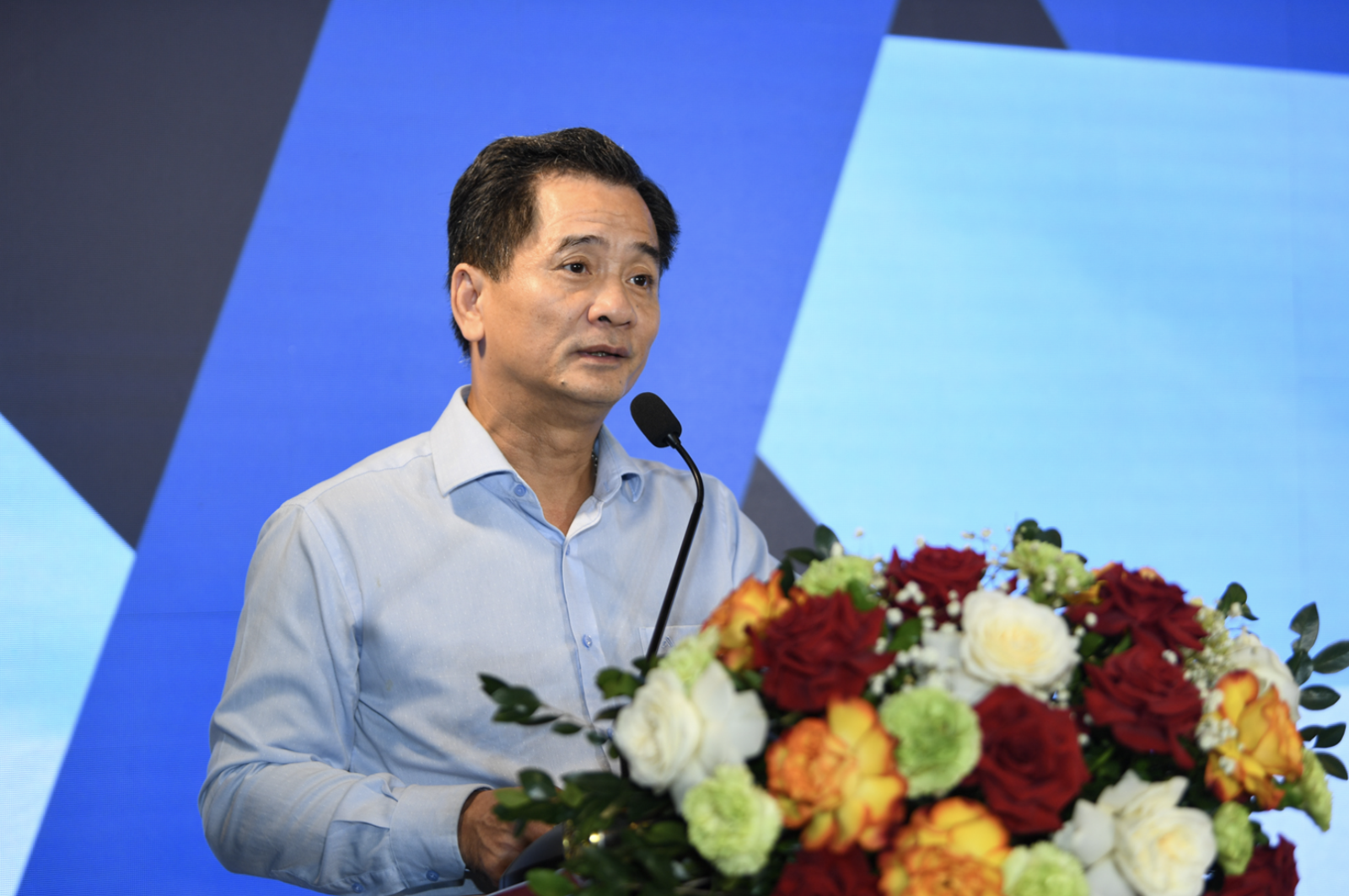
It is impossible to use administrative orders or impose the expectation of "building cheap houses at all costs", because no business can lower prices, reduce profits and still develop. Businesses need to have clear economic motivation, if they are forced to do it while not making a profit, they will not be able to maintain, reinvest or develop. Regarding high housing prices, it is the result of many groups of costs. Land costs alone account for 30-40%, in some places up to 50% of the selling price. Construction costs are relatively stable, but procedural costs and capital costs are the cause of price increases, many projects are "shelved" for 6-0 years, causing loan interest and opportunity costs to increase many times over.
Source: https://baotintuc.vn/kinh-te/phat-trien-nha-o-xa-hoi-khoi-thong-dong-von-va-xu-ly-goc-re-nguon-cung-20251022114250444.htm




![[Photo] Da Nang: Shock forces protect people's lives and property from natural disasters](https://vphoto.vietnam.vn/thumb/1200x675/vietnam/resource/IMAGE/2025/10/22/1761145662726_ndo_tr_z7144555003331-7912dd3d47479764c3df11043a705f22-3095-jpg.webp)
![[Photo] Prime Minister Pham Minh Chinh chairs meeting on nuclear power plant construction](https://vphoto.vietnam.vn/thumb/1200x675/vietnam/resource/IMAGE/2025/10/22/1761137852450_dsc-9299-jpg.webp)


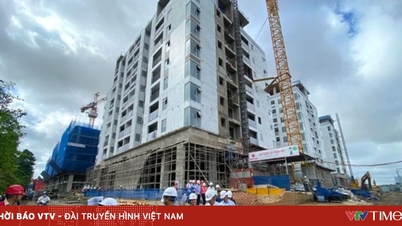

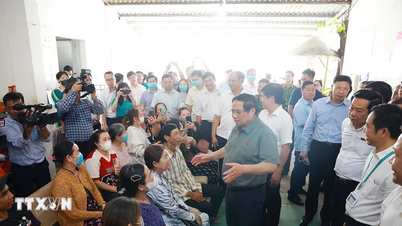

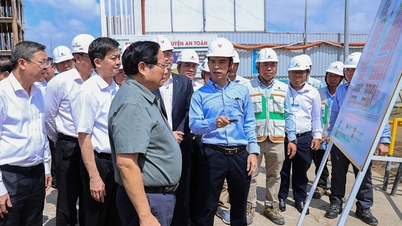

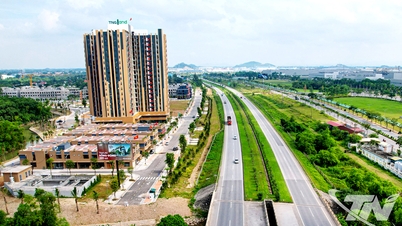

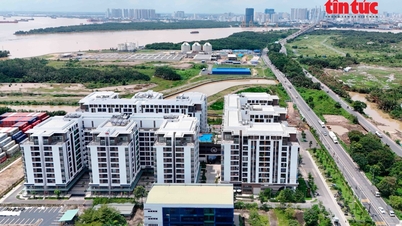
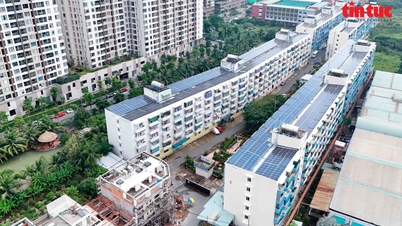
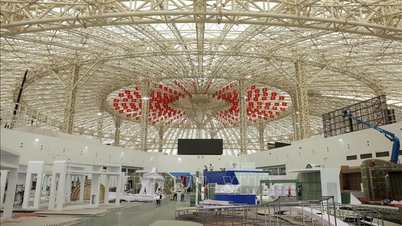
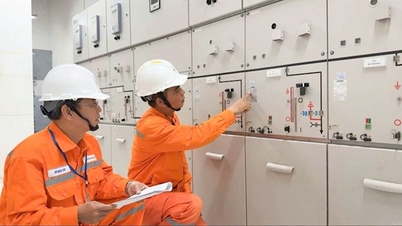










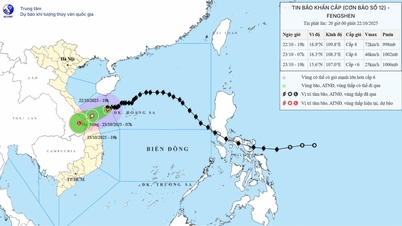
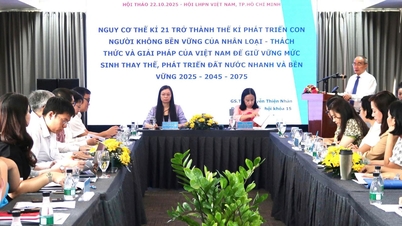






































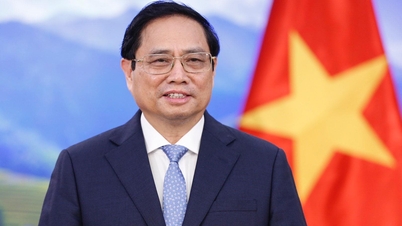

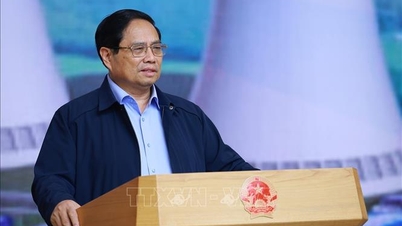




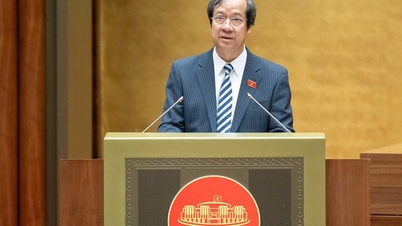




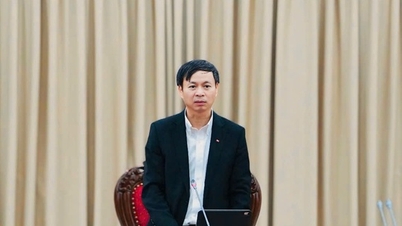






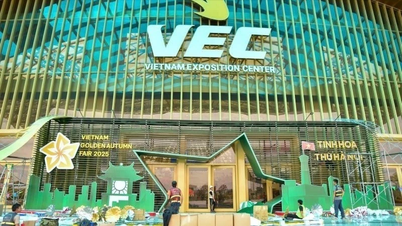




















Comment (0)